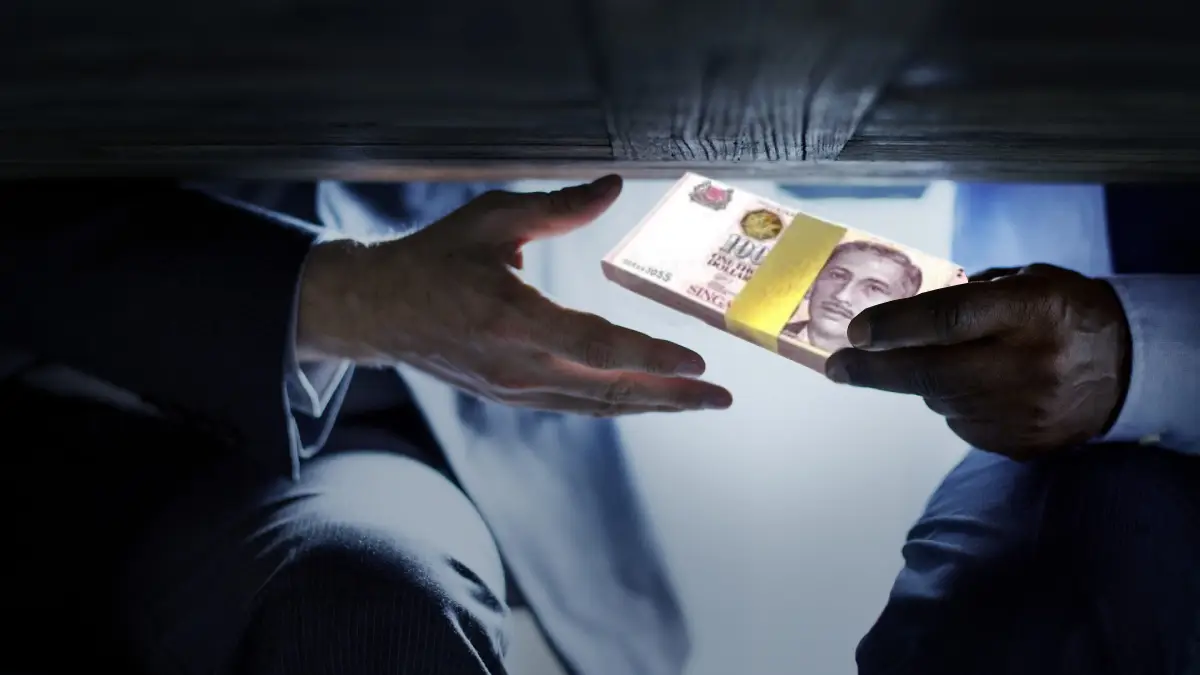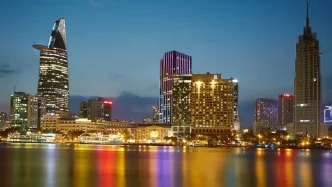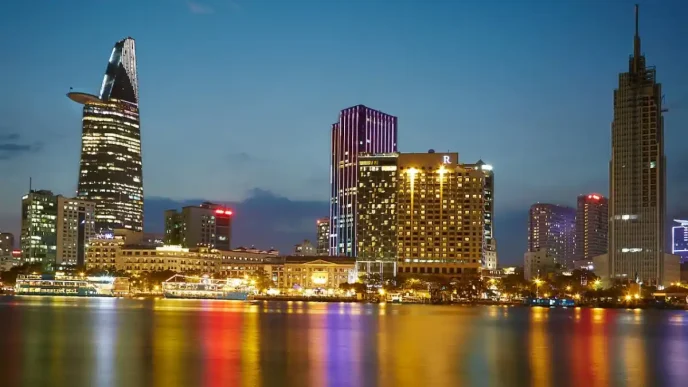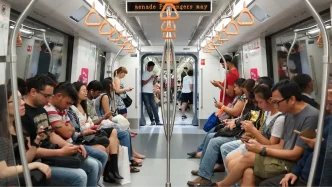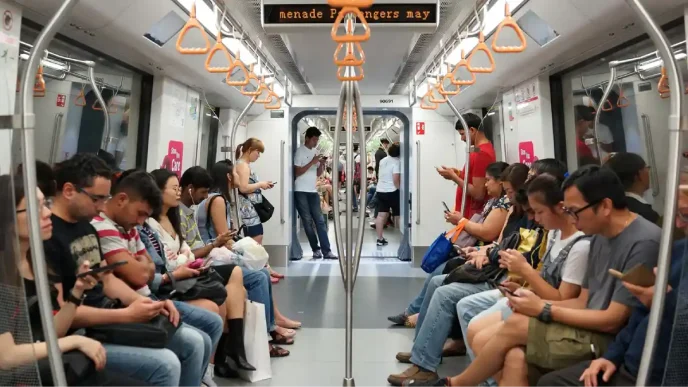Singapore’s largest-ever money laundering investigation, involving a staggering S$3 billion (US$2.33 billion), has taken a significant step forward as authorities handed over hundreds of seized luxury items and gold bars for liquidation. On August 12, 2025, the Singapore Police Force transferred 466 luxury goods and 58 gold bars to Deloitte & Touche Financial Advisory Services, marking a pivotal moment in the high-profile case that has gripped the nation since islandwide raids in August 2023.
The case, tied to an illicit gambling ring operating across Southeast Asia, led to the conviction of ten individuals from China—nine men and one woman—all of whom were deported after serving their sentences. Now, the focus shifts to the disposal of non-cash assets, including high-end handbags, watches, and jewelry, as the government seeks to recover funds for the state.
Unpacking the Seized Assets
Displayed at the Police Cantonment Complex, the confiscated items paint a picture of opulence. Among the luxury goods are approximately 50 branded handbags from iconic labels such as Louis Vuitton, Hermès, Dior, and Chanel. Notable pieces include a Hermès Birkin 25 Togo bag, valued at around S$30,000 (US$23,300), and a Hermès Kelly Alligator bag, which could fetch between S$70,000 and S$120,000 (US$54,400 to US$93,200) based on online broker listings.
The collection also features 14 luxury watches from prestigious brands like Patek Philippe, Richard Mille, Van Cleef & Arpels, Rolex, and Audemars Piguet. A Patek Philippe World Time Chronograph, estimated at S$120,000 (US$93,200), and a Richard Mille RM 67, valued at over S$400,000 (US$310,700), stand out as particularly extravagant. Additionally, 58 gold bars, each weighing 1 kilogram and worth approximately S$139,000 (US$108,000), were handed over, alongside jewelry pieces including earrings, bracelets, jade necklaces, and even a gold display plate.
The handover process, observed by media on August 12, 2025, was meticulous. Officers from the Commercial Affairs Department (CAD) transferred the items to Deloitte staff, who disassembled luxury bags into components for documentation, photographed them, and packaged them into brown bags. Watches underwent brief inspections before being stored in transparent cases, while gold bars were carefully inspected and secured.
The Scale of the Investigation
The S$3 billion money laundering case, uncovered in August 2023, represents a landmark in Singapore’s fight against financial crime. The illicit funds were amassed over years through an underground gambling network spanning the region. While the ten convicted individuals have been dealt with, an additional S$2 billion in assets remains tied to 17 other suspects who are currently outside Singapore’s jurisdiction and on the run.
As of December 2024, assets worth approximately S$2.79 billion (US$2.17 billion) have been surrendered to the state, according to Home Affairs Minister K Shanmugam. Of this, S$1.54 billion (US$1.2 billion) consists of cash or financial assets, with the remainder comprising non-cash items like properties, vehicles, and luxury goods. To date, S$1.8 million (US$1.4 million) from liquidated assets has been paid into Singapore’s consolidated fund—a government account used for revenue and expenditure, as per the Parliament’s official resources. An additional S$390 million (US$303 million) is pending payment into the fund for the 2024 financial year.
Earlier liquidations, announced in February 2025, included 54 properties, 33 vehicles, and 11 country club memberships. The transfer of the latest batch of luxury goods and gold bars to Deloitte between August 11 and 12, 2025, continues this systematic effort to recover and redistribute illicit gains.
The Road to Liquidation
Deloitte & Touche Financial Advisory Services has been tasked with managing and realizing the value of these non-cash assets. Following the handover, the firm will securely store the items and develop proposals for their sale, which could include auctions or direct transactions. These proposals will be submitted to the police for approval, with the government’s final nod required before sales can commence.
The process underscores Singapore’s commitment to ensuring that proceeds of crime are not retained by offenders. By channeling recovered funds into the consolidated fund, the state aims to redirect these resources for public benefit, reinforcing its reputation as a financial hub with zero tolerance for illicit activities.
Broader Implications for Financial Integrity
Singapore’s handling of this case sends a powerful message about the city-state’s dedication to combating money laundering and transnational crime. The scale of the seized assets—ranging from multimillion-dollar properties to gold bars and designer handbags—highlights the sophistication of modern financial crimes. It also raises questions about how such vast sums could be laundered through the region’s economies undetected for years.
Experts note that Southeast Asia remains a hotspot for illicit gambling operations, often linked to organized crime syndicates. Singapore, with its robust financial systems and strategic location, is both a target for money launderers and a leader in regional efforts to curb such activities. The government’s collaboration with international agencies and private firms like Deloitte reflects a multi-pronged approach to tackling these challenges.
Moreover, the public display and detailed documentation of seized assets during the handover signal transparency—a critical element in maintaining trust in Singapore’s legal and financial systems. By inviting media to observe the process, authorities demonstrate accountability, ensuring that the liquidation process is conducted above board.
Regional and Global Context
The case also casts a spotlight on the broader issue of money laundering in Southeast Asia, where porous borders and varying levels of regulatory oversight can complicate enforcement. Countries across the region, from Thailand to the Philippines, have grappled with similar schemes, often involving online gambling platforms that operate in legal gray areas. Singapore’s decisive action could set a precedent for how governments manage the proceeds of such crimes, potentially encouraging tighter cooperation among ASEAN nations.
Globally, the liquidation of luxury assets in this case draws parallels to high-profile investigations elsewhere, such as the 1MDB scandal in Malaysia, where billions in misappropriated funds were traced to luxury purchases. Singapore’s role in that case—freezing assets and aiding investigations—mirrors its proactive stance here, reinforcing its position as a key player in international financial governance.
Challenges Ahead
While the handover of assets marks progress, challenges remain. Valuing and selling luxury goods, particularly rare items like the Richard Mille RM 67 watch or the Hermès Kelly Alligator bag, requires expertise to ensure fair market prices are achieved. Auctions, one of the proposed methods, can be unpredictable, especially for items with niche appeal. Direct sales, meanwhile, may raise concerns about transparency if not conducted openly.
Additionally, the fate of the S$2 billion tied to fugitives outside Singapore’s reach poses a significant hurdle. International cooperation will be crucial to recovering these assets, a process that could take years given the complexities of cross-border legal frameworks. For now, the focus remains on liquidating what is within the state’s control, a task Deloitte is well-positioned to handle given its global experience in asset recovery.
Looking Forward
As Deloitte prepares to sell off these symbols of ill-gotten wealth, the S$3 billion money laundering case continues to unfold. The proceeds from these sales will bolster Singapore’s coffers, but the broader impact lies in the deterrent effect on would-be offenders. With each liquidated asset, the message is clear: crime does not pay in Singapore.
Yet, questions linger about how the remaining assets will be recovered and whether the full extent of the gambling ring’s operations will ever be uncovered. As the government presses forward, the balance between enforcement, transparency, and international collaboration will shape the legacy of this unprecedented case.

